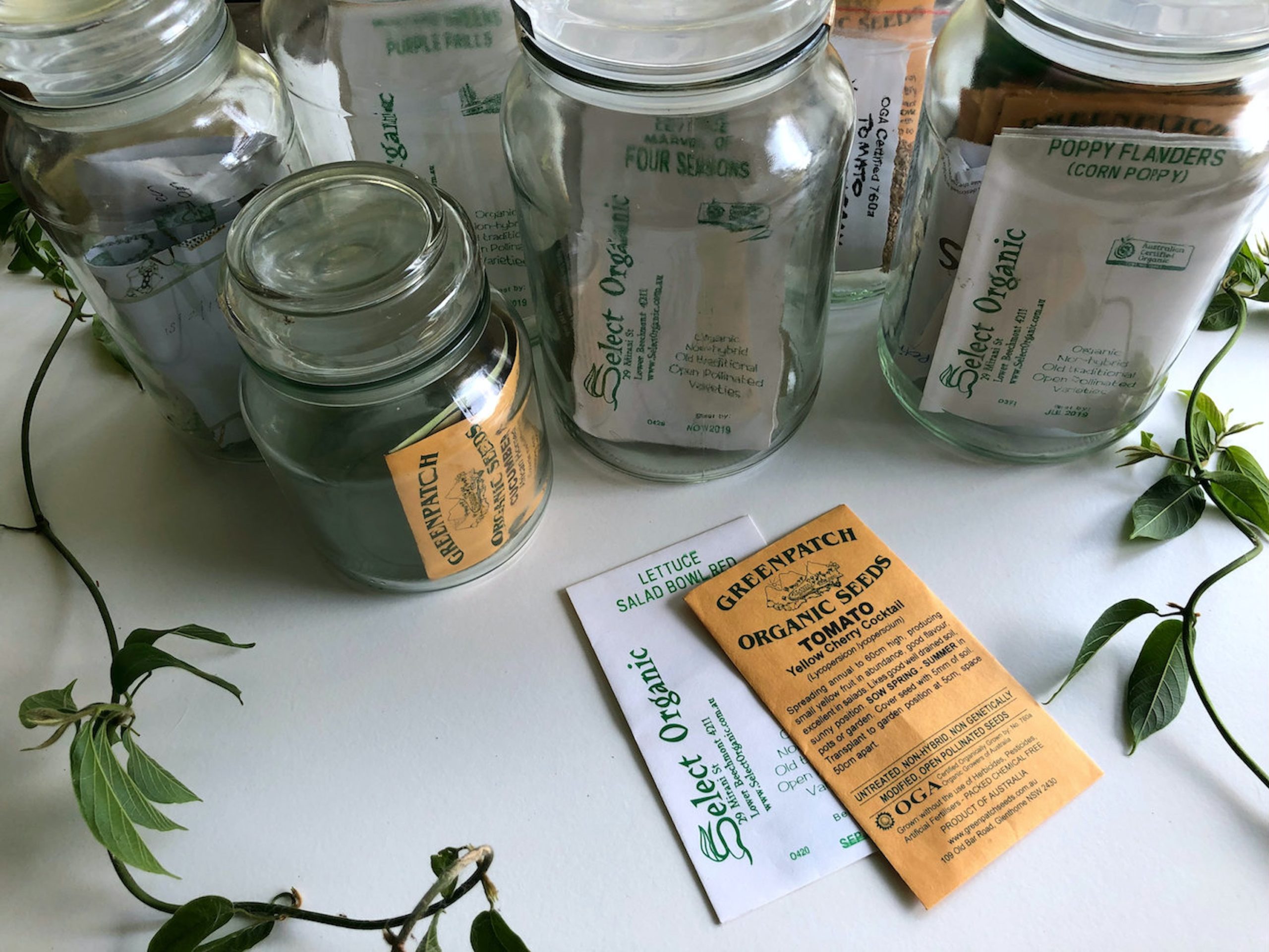
FAQ
When you buy seeds locally, you are supporting local farms and businesses. And if the seeds are grown locally, they are more likely to be adapted to your particular region’s soil, climate and hours of sunlight
Open-pollinated seeds are seeds that “breed true.” This means the seeds from a plant will produce plants very similar to the parent, as long as it is self-pollinated or pollinated by another plant of the same variety.
All heirloom seeds are open-pollinated, but not all open-pollinated seeds are heirloom.<>
Heirloom seeds are seeds that have been passed down from generation to generation because they have certain traits that make them desirable. In time, those traits become permanent features of the open-pollinated seeds.
The only difference between an heirloom variety and other open-pollinated varieties is how long people have been growing it. Depending on who you ask, an heirloom variety needs to be the same as it was 50 years ago. Or before World War II. Or before 1950.
The main advantage of open-pollinated/heirloom varieties is that you can save seeds from the plants and grow a new generation of plants that will be essentially the same as the first.
Heirloom varieties also tend to have traits that make them more desirable to home gardeners — such as being more delicious — rather than traits that large-scale farmers want — such as having a long shelf life.
Hybrid seeds are produced by cross pollinating two plants. Each plant has desirable characteristics that the breeder wants to combine.
All of the plants grown from these seeds will be similar to each other, but if you save their seeds the next generation won’t have consistent characteristics.
When you cross two plants to create hybrid seeds, the first generation is referred to as F1 . If you then cross two F1 plants, you’ll get F2 seeds. And if you cross two F2 plants you’ll get F3 seeds.
If you continue doing this, generation after generation, you will eventually develop an open-pollinated variety that has consistent traits.
The biggest disadvantage of hybrid seeds is that you can’t grow them to save their seeds. The next generation won’t have the same consistent traits as the parent plants.
If you care about seed sovereignty — the right of farmers to save, use, exchange and sell their own seeds — then you should only buy open-pollinated/heirloom seeds.
But there is no denying that hybrid seeds have some advantages. They are bred to have certain traits that are harder to find in open-pollinated varieties, such as higher yields, longer shelf life and pest-resistance. If you are a farmer, hybrid seeds can significantly improve your profitability.
GMO (genetically modified organism) seeds are developed using genetic engineering techniques in a lab. With these techniques, scientists are able to make dramatic changes to species that would be impossible with traditional breeding techniques, or at least would take a very long time.
For example, most soybeans in the U.S. are grown from GMO seeds that make them tolerant of glyphosate. So farmers can use glyphosate as an herbicide to kill weeds in their fields without killing the soybean plants.
No. Absolutely not.
If you visit the website of any seed company that sells directly to home gardeners, you will find a statement that they don’t sell GMO seeds.
Every. Single. One.
Unless you are a farmer, nobody is going to sell you GMO seeds. So you can take that off your list of things to worry about.
My goal is to have every single seed company and farmer who sells seeds directly to home gardeners in the U.S. on this list.
It is a work in progress.
If you know about a seed seller I should include, please let me know! My email address is christine@localseedsearch.com
For now, I’m only including U.S. seed sellers because I needed to limit the scope in order to finish in time for seed-buying season.
However, I would like to expand the list to include Canada if there is enough interest.
If you live in Canada and want me to include Canadian seed sellers, let me know. My email address is christine@localseedsearch.com